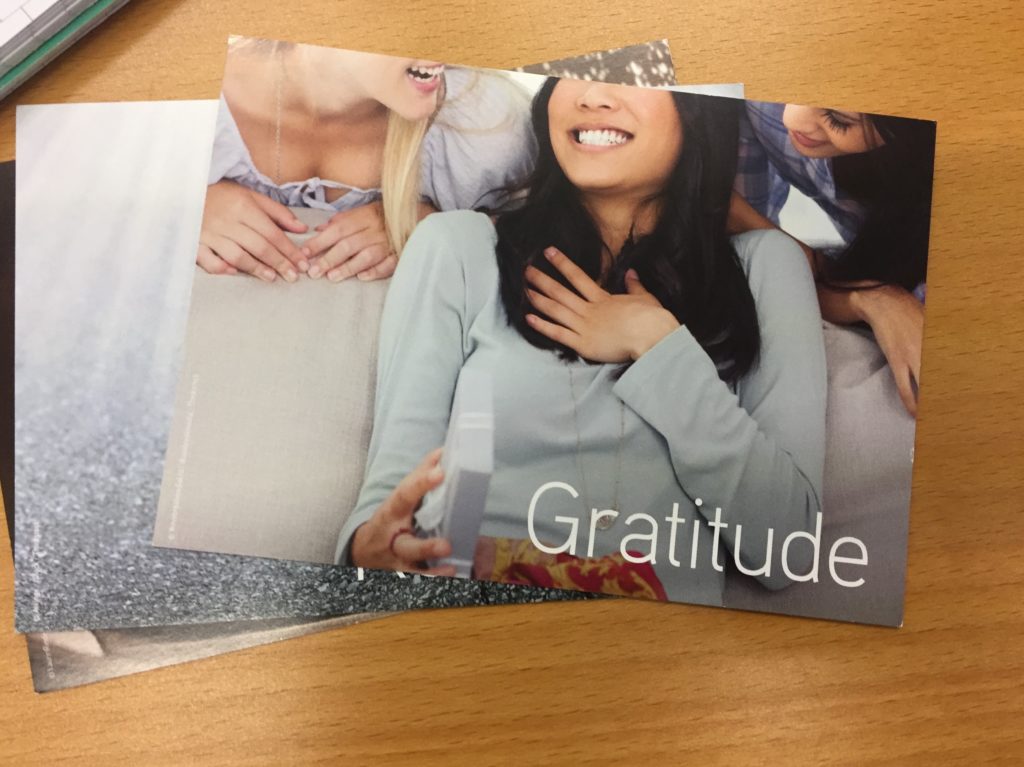Uplifting music and words of encouragement during this challenging season!
Church buildings may be closed but the church is very much alive!
Halleluyah!
Uplifting music and words of encouragement during this challenging season!
Church buildings may be closed but the church is very much alive!
Halleluyah!
The Bishop of London, The Rt Revd and Rt Hon Dame Sarah Mullally DBE, has written this letter to be circulated and read for children across the Diocese. Please share this with parents and carers in your communities.
Click link below to read the full letter and download a printable PDF copy
https://www.london.anglican.org/articles/letter-bishop-london-to-children/For a free resource on overcoming depression, please click link below
https://joycemeyer.org/everydayanswers/hope-for-life
No matter what you are going through right now, God loves you. He’s there for you and wants to give you hope for a good future.

Holy Trinity Brompton (HTB) is running this course together with AtaLoss.org for anyone who is bereaved, whether recently or dating back several years. Course is due to start 11th May 2020 however bookings close Friday 8th May 2020.
Topics to be covered include:
To find out more about the course, please click the link below:
I spent a big chunk of last week in one of my favourite cities in Europe – Basel, Switzerland. I love Basel not because of its architecture, cuisine, tourist attractions etc… but because it was a city I lived in many years ago. It was where I rediscovered myself as an adult and experienced immense growth professionally and personally.

Going back there 10years after I first stepped foot into this foreign land was surreal. I had limited time to explore the city again, as I was in meetings during the daytime and then prearranged team dinners in the evening. However, just being back in Basel gave me a lot to reflect on.

For starters, I have so much to be grateful for. I am now married to my ‘then’ boyfriend, with two amazing children. I am still working in the same industry that impacts the lives of many patients globally- doing now what patients need next.
In the course of the week, I spent time with delegates from my home country Nigeria, Kenya, Netherlands, Algeria, U.S.A, Germany and Hungary. Networking requires a lot of energy, by the end of each day I was mentally exhausted but at the same time, grateful for the opportunity to meet and exchange ideas, stories and aspirations with a diverse range of individuals.
There’s a saying about how each of us is going through one sort of battle. Spending quality time with different individuals during the course of the week brought this to light.
I recall chatting with one of our leaders who had experienced sibling loss at a young age. This loss had a huge impact on her mental health for a significant period of her life, as she recounted her journey and how she’s been able to overcome her challenges, I was reminded of the work I do with Letters of Hope, bringing hope to the bereaved in times of despair. I had the courage to ask her to consider helping young children going through similar experiences, I shared with her the power of story telling and how this resonates with young people- giving them that feeling of “I am not the only one going through this”. She admitted she had limited time due to various commitments but she will consider this.
This is my ask of you today as you read this article, consider finding a young person to encourage and mentor. Consider finding someone who is experiencing what you have gone through and overcome or still going through, and hold each other’s hands through this journey.
Loneliness is something I had to overcome whilst in Basel many years ago, now I am surrounded by numerous people who genuinely care about my wellbeing, I can also pass on that baton to someone else who is considering taking a job in a foreign land with great prospects but afraid of doing so… I encourage you to weigh the pros and cons and be bold in doing that which your heart is yearning for. There is so much more waiting for you on the other side of that bold step, do it afraid!
Have a great week!
2019 is swiftly going by…we’re already at the end of the very first month
So much has happened in my world and I’m sure the same can be said for yours.
Some of you may have experienced bereavement leading up to this year or even in this month, please accept my condolences. I pray that you will experience peace that surpasses your understanding, even when life doesn’t make sense, may your hope for the future be restored and renewed.
One of the many questions I get asked about grief is “when will this pain end?” or another variation is “Does it get easier in time?”
So I’d like to share my personal experience with you 🙂
It has been over twenty years since my mum died, I actually have to think deeply to recount the years… okay so it was 25 years last summer.
Have I forgotten about her? Ofcourse not
Is she part of my daily thoughts? Not anymore
Have I had seasons where I thought of her continuously? Yes
Is my loss easier to cope with now? Yes
About 5 years ago when I had my son, I had moments when I was depressed and desperately wanted my mum to be around me, for physical support as well as emotional support.
Two years later when I had my second child, my experience was completely different, I guess motherhood was no longer daunting, I wasn’t crying endlessly wishing my mum would just show up.. lol.. like seriously?!! I would scream and run as fast as my legs would go if she turned up
Why am I sharing this? What seems insurmountable today will not be the case tomorrow, it does getter better with time. I know so. I’ve learnt so and I believe if it can happen for me, it will get better for you too. #HoldOn
Do take one day at a time and allow yourself to grieve, go through the process, the emotions.
No two people grieve in exactly the same way and it may take you longer to accept your loss. It may take you longer than your family members, but that doesn’t mean you’re coping better or worse….it just means you are being YOU.
If you would like resources on coping with grief, either for yourself or someone else including young children, please reach out via email: hello@lettersofhope.org.uk
#BeEncouraged
Photo by takahiro taguchi on Unsplash
If you have recently lost a loved one, you may find it difficult to do the daily things that are necessary to take care of yourself. You may feel like you lack the energy to make yourself a meal or exercise, and that is fine — every person has their own grieving process. However, it is important to maintain certain standards of self-care even while you deal with your grief. One of the most crucial things you can do to help yourself stay healthy in the grieving process is to make sure that you get enough sleep each night. Getting enough sleep will keep your energy levels up and will help make you more mentally able to deal with your grief. Here are some ways you can encourage yourself to get more sleep even with so much on your mind.
Take Steps to Improve Your Sleep
There are several things you can do as part of your late-afternoon and evening schedule that can further affect your sleep. First, if you take the time to exercise earlier in the day, you will find that it becomes much easier to fall asleep. Physical activity also helps the body experience a higher quality of sleep for an entire night.
If you are still finding it difficult to fall asleep, even with a regular routine, you may want to try some specialized equipment. Face masks, sleep monitors, and smart gadgets can be very useful at both fostering sleep and identifying problems with your current sleep habits. Be aware of your needs when looking at gadgets, though — if you don’t suffer from sleep apnea, for instance, you don’t need a gadget that focuses on correcting it. Another external thing that can affect your sleep is the color you have painted your bedroom walls. Soft, calming earth tones make it easier for you to fall asleep, while bright, less natural colors inhibit sleep.
Establish a Pattern
The first thing you should do is regulate your body to engage in a full night of sleep at the end of the day, even if most of your day has been consumed with grief and stress. In fact, stress is a major inhibitor of sleep, but routines are equally powerful. This is why you should make a point to establish a nightly pattern that you stick to even when you feel at your lowest. Eat dinner around the same time at night, usually a couple hours before you go to bed. Take a warm shower and read a book, or watch a relaxing television program. An hour before bed, try to turn off your electronic devices to ensure the blue light they emit won’t impact your sleep.
If you think that establishing a bedtime ritual, such as a glass of warm lemon water, will help trigger your body to realize that it is time for sleep, go ahead. What’s important is that you follow your routine every day. Part of this involves going to sleep around the same time each night. This can be difficult if you work odd hours, or if you like to spend your weekends differently than you do your weekdays. However, establishing a schedule is one of the best ways you can increase the likelihood that your body will fall asleep on time.
Dealing with grief is difficult enough on its own without being compounded by a lack of sleep. By making sure you get enough sleep, you will help yourself begin the healing process without adding to your pain and stress with chronic sleeplessness.
Photo Credit: Pexels
Sara Bailey is a widow. She writes about loss as a way to help her heal and to offer hope to others who’ve suffered a loss. You can connect with her at info@thewidow.net
TheWidow.net
Every now and then, I feel anxious about certain things. I think most of us have these feelings.
Earlier this week, I got a message in my inbox from a young lady who had lost her mum at a very young age and had been dealing with the fear of losing other loved ones. I asked her a few questions to help me identify the trigger for this fear, so I can support her as best as I can
In this blogpost I want to share with you some tips to help you in managing anxiety related to grief. This is not a step-by-step guide and is definitely not an exhaustive list, I do hope you find one or two tips to help you on your journey.
In this young lady’s situation, the anniversary of her mum’s death was coming up. It’s natural to start to worry about the future when past memories of a loved one come flooding in. You don’t want to experience the pain and hurt all over again. So what I tend to do is fill my mind with fond memories, I try to do things that will help me stay positive and hopeful about the future. I spend quality time with people who have a positive outlook on life
Asking these questions help you understand your beliefs about death and mortality, and you can then begin to explore these beliefs. They can also help you understand the real cause of your fear which may be related to some experience that you need healing from? It may be helpful to reach out to a counselor or someone you trust and respect.
You can jot down your thoughts or responses to these questions in any notebook or journal. At Letters of Hope, we have a simple notebook that can be used for this purpose, it is available via this link.
Recently, I read a book on Overcoming the fear of death by Amanda Bedzrah. It helped me put things in perspective and also reassured me that it’s actually ‘normal’ to have this fear following the loss of a loved one. She shared some practical tips in her book and I’d recommend you get a copy on kindle. For tweens and teenagers, my book Letters of Hope is also a great resource. It is available on Amazon Kindle and paperback is for sale on this site.
You’ll find the strength and courage you need simply by sharing your journey and listening to how others have coped with similar struggles. When I wrote back to the young lady who contacted me, I simply shared part of my grief experience with her, and she was thankful. In her own words ‘I had been a great help’. We are often strengthened by other people’s journey, we realize that we are not alone in our walk, others have had similar experiences and are findings ways of coping.
The key thing is not to suffer in silence. If you feel overwhelmed by your thoughts or feeling of anxiety. I strongly recommend you speak up and get help as soon as possible. For grief support, please search for bereavement charities in your local area or simply send me a direct message and I can help you find one.
In addition to these practical tips, talk to God about your fears and trust Him to help you deal with them, He always makes a way.
Until next time, continue to stay positive and hopeful!
Ope
Are you wondering how to support a grieving friend. Perhaps you’re planning a visit and need suggestions of what you can give – to make a difference, to bring comfort or healing?
These are just suggestions based on my past experience and would appeal to different people based on their personality, background (culture, faith), age and perhaps the type of loss they have experienced.
Some of the gifts on this list have been given to young as well as old, male and female, people of different racial background, widows as well as grieving children, grieving siblings and relatives.
One of the services I provide at Letters of Hope is helping the wider community choose the ideal gift for their grieving friends, colleagues and acquaintances. Often times, I will ask my client a few questions about the intended recipient and nature of loss, to help me in putting a package together, and ofcourse the budget is also an important factor. One of the key factors to also bear in mind is the timing of your gift. Whilst you may mean well, your gift may not mean so much to the intended recipient if it’s delivered so soon after the loss.
As a faith based organisation, I believe in the Bible as the word of God, this is what has helped me in my own journey with grief, hence some of our products are based on Biblical encouragement. I have been fortunate to support people from all walks of life and our products and services are accessible to all.
At Letters of Hope, a memory box is included in some of our gift packages, they can also be bought individually. Currently, they are available in 2 colours – white and blue.


The above list is non-exhaustive. There are other gifts which I haven’t mentioned above such as flowers, cards, fruit hampers, food for the family. These are quite common and your grieving friend may already have a house filled with these. Nonetheless, do what you feel is best and what you know they will genuinely appreciate.